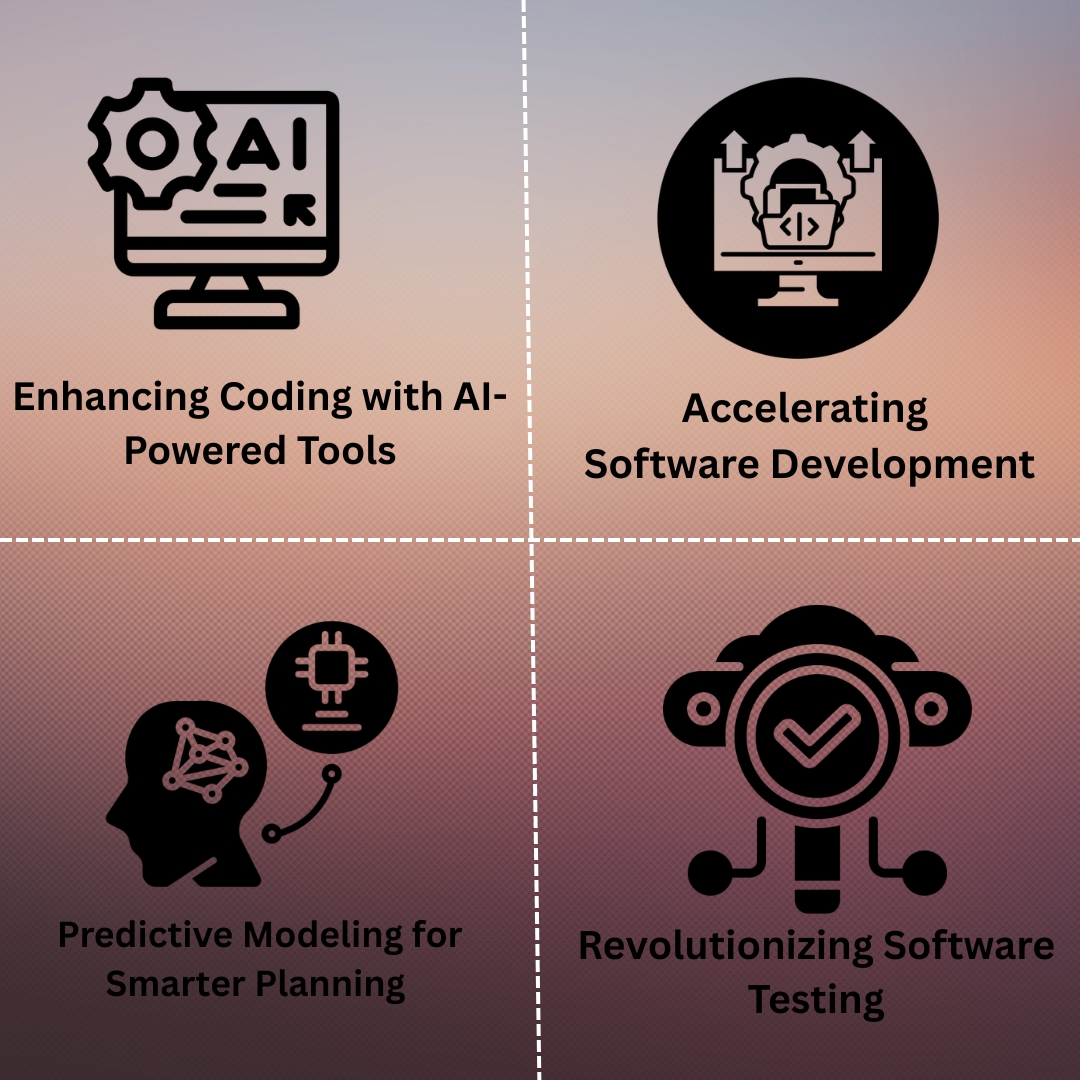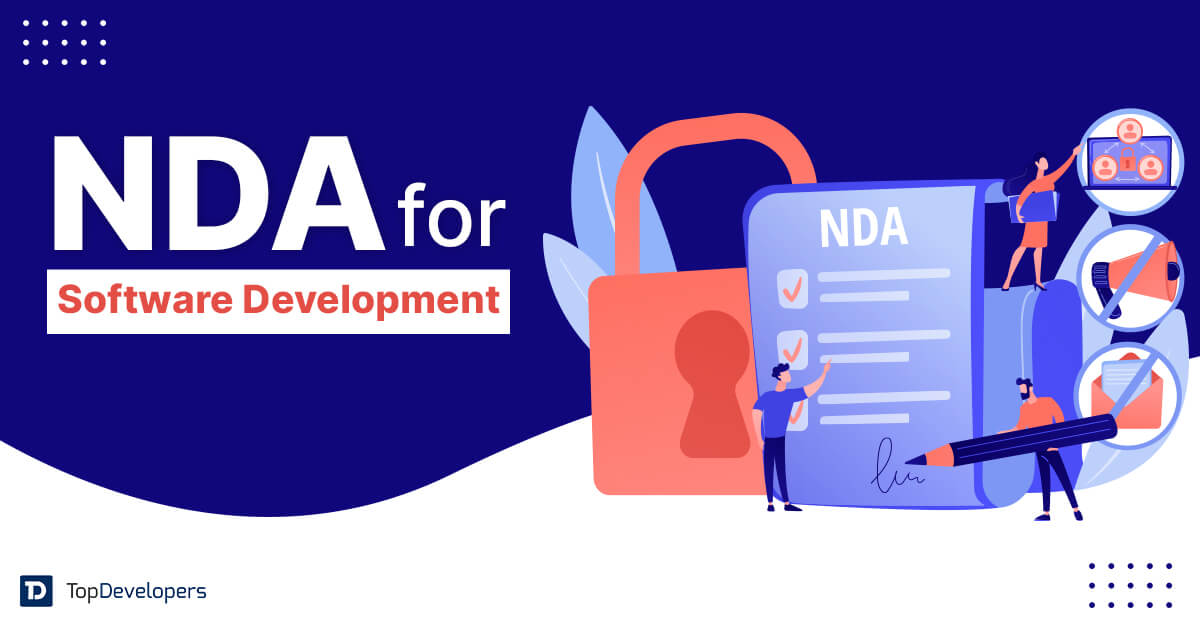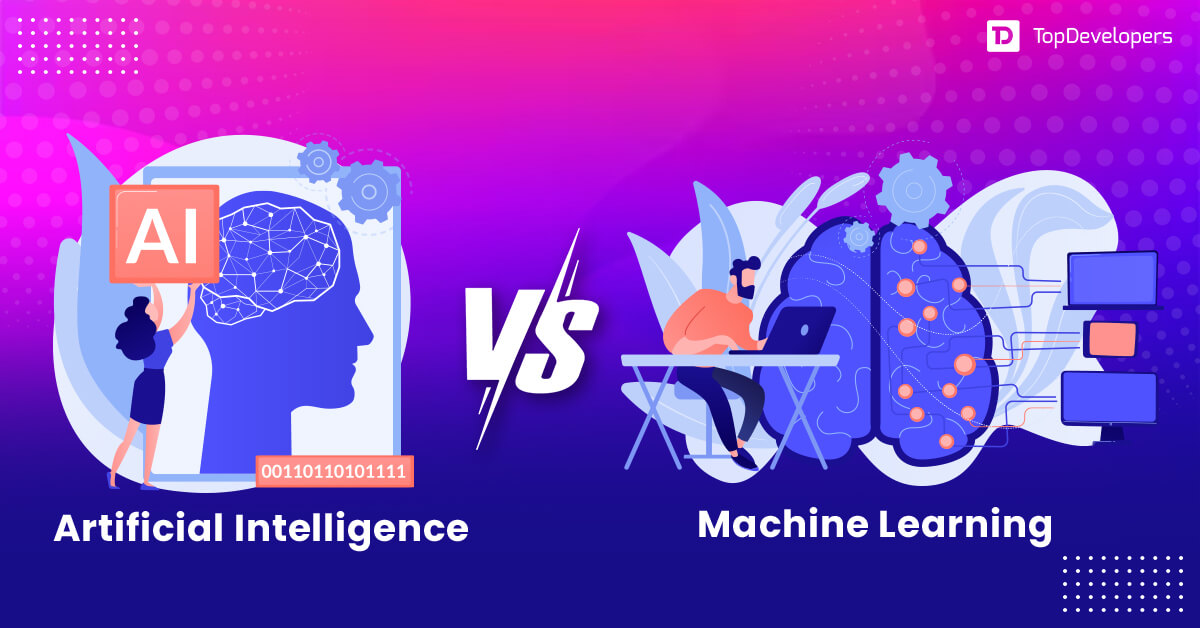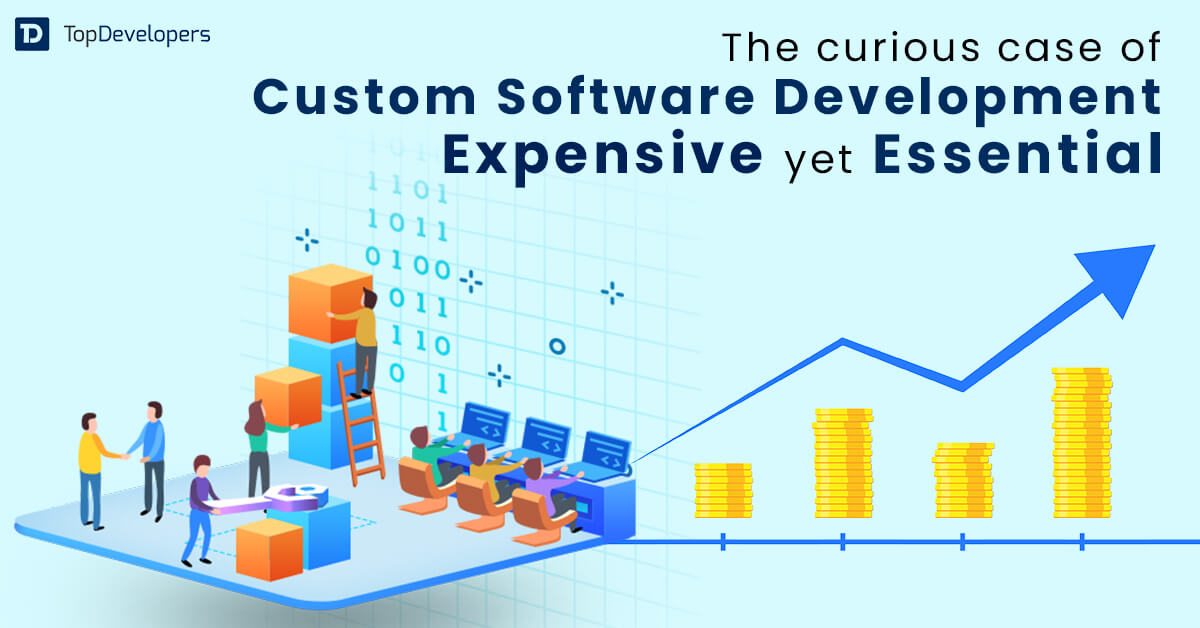
Artificial Intelligence is no longer a buzzword. It’s a game-changer for the software development world. From code generation to project planning, AI is transforming how teams work, think, and deliver.
According to UNCTAD, the global AI market is projected to reach 4.8 trillion dollars by 2033. This makes it one of the most dominant frontier technologies of our time. The rapid growth shows that AI is more than just hype. It reflects real, measurable changes in how digital products are being built.
In this blog, we’ll explore how AI is reshaping software development. We’ll clear up common misconceptions and highlight the real opportunities it offers to developers, businesses, and users.
Table of Contents
- What is AI in Software Development?
- Will AI Replace Software Engineers? Debunking Myths and Understanding the Real Impact
- How AI Is Transforming Software Development Processes
- Key Benefits of AI in Software Development
- Boosting Productivity by Automating Routine Tasks
- Enhancing Software Quality with Predictive Modeling
- Cost Reduction and Efficiency Gains
- Accelerating Development with Faster Decision-Making and Planning
- Democratizing Software Development
- Advanced Data Analysis for Better Insights
- Improving User Experiences
- Accelerating Time-to-Market
- Challenges and Ethical Considerations of AI in Software Development
- The Future of AI in Software Development
- Embracing the AI Revolution in Software Development
What is AI in Software Development?
AI in software development refers to the use of artificial intelligence tools and techniques to enhance the way software is created, tested, and maintained. It helps automate repetitive tasks, improve decision-making, and boost overall productivity.
Instead of writing every line of code manually, developers can now use AI to generate code snippets, detect bugs, and suggest improvements. AI also assists in project planning, code reviews, and testing, making the entire development cycle faster and smarter.
Will AI Replace Software Engineers? Debunking Myths and Understanding the Real Impact
- One of the most common software development myths today is that AI will completely replace engineers.
- In reality, AI tools like code generators and intelligent agents are designed to support, not substitute, human developers.
- These tools can handle repetitive tasks like writing boilerplate code, debugging, and basic testing.
- However, they still depend on human input, especially for decision-making, creativity, and solving complex problems.
- A growing trend known as “vibe coding” allows developers to interact with AI in a more conversational, prompt-driven way.
- This approach streamlines the coding experience, but it still requires technical understanding and control from the developer.
- AI agents are evolving quickly and taking on more responsibilities, but they perform best with oversight and guidance from skilled engineers.
- The belief that AI will replace all developers is one of many outdated software development myths.
- In truth, AI is changing how software is built, not eliminating the need for the people who build it.
Developers who embrace AI as a partner will be more productive and more in demand than ever before.
How AI Is Transforming Software Development Processes
The integration of AI in software development has fundamentally changed how software is built, from initial design to deployment. By automating time-consuming tasks and optimizing development workflows, AI-driven development processes are enabling faster and more efficient software creation. These advancements are empowering developers to focus on innovation and creativity while allowing businesses to streamline their operations. Recent AI trends have played a significant role in these advancements, leading to the development of more sophisticated tools that are reshaping the way software is developed. In this section, we will explore how AI is revolutionizing the software development process through enhanced coding, automation, smarter decision-making, and more effective testing.
Enhancing Coding with AI-Powered Tools
Software development has been improved due to use of AI and relevant tools for coding and other development-related purposes. Repetitive coding tasks such as bug fixing, code refactoring, and optimization are now being automated. AI-powered tools are capable of analyzing large codebases, identifying errors, and even suggesting improvements with incredible accuracy. This automation not only speeds up software product development but also minimizes the chances of human error, leading to better software quality.
With the integration of machine learning models, AI in software development allows for adaptive code generation that can evolve with the procedure of software development. These tools are designed to learn from previous code and adapt their suggestions over time, improving their efficiency and relevance.
Accelerating Software Development with AI Automation
The traditional software development life cycle (SDLC) has been significantly shortened thanks to AI-driven development processes. Manual testing and debugging, once time-consuming tasks, are now being handled by AI tools, allowing developers to focus on more critical aspects of software creation. By automating these tasks, development teams can achieve faster time-to-market without compromising quality.
Automated testing, powered by machine learning in software development, is one of the key areas where efficiency has been vastly improved. AI tools can simulate multiple user interactions and scenarios, identifying potential bugs and performance issues before they impact the end-user experience.
Predictive Modeling for Smarter Planning and Decision-Making
Another breakthrough made possible by AI in software development is predictive modeling, which helps in anticipating problems and optimizing the development process. AI models can analyze historical data, trends, and performance metrics to predict potential bottlenecks and risks in a project’s timeline. This allows software development team members to take proactive measures and make smarter decisions regarding resource allocation and project planning.
As predictive models become more refined, they can offer even more precise forecasts, helping businesses plan their software development strategies with greater confidence. AI-powered decision-making is proving invaluable in managing large-scale development projects, where the margin for error is minimal.
Revolutionizing Software Testing with AI-Driven Automation
In the realm of software development, AI has also been a game-changer for the testing phase. AI-assisted testing tools are being employed to perform automated checks and simulations, analyzing various use cases and scenarios that might otherwise be missed. These tools can also adapt to changes in the software, automatically adjusting test parameters based on new inputs and feedback.
By utilizing AI in software testing, development teams are able to identify issues earlier in the process, reducing the risk of bugs appearing in the final product. Automated testing not only improves accuracy but also reduces the overall testing time, leading to faster development cycles and higher-quality software.
Key Benefits of AI in Software Development
The adoption of Artificial intelligence in software development has revolutionized the way software is created, delivering unparalleled benefits to businesses, developers, and end-users. From boosting productivity to enabling smarter decision-making, the advantages brought by AI-powered tools and AI software platforms have been significant. Below, key benefits are outlined to showcase the transformative impact of AI-driven software development processes.
Boosting Productivity by Automating Routine Tasks
One of the greatest advantages offered by AI in software development is the automation of repetitive tasks. By handling processes such as code refactoring, debugging, and testing, AI enables development teams to focus on more strategic activities. Time-consuming manual efforts are being replaced with AI-powered tools that can perform these tasks with speed and accuracy, significantly improving overall productivity.
Enhancing Software Quality with Predictive Modeling
Predictive modeling, powered by machine learning in software development, is enabling teams to identify potential risks and bottlenecks before they occur. AI is being used to analyze historical data and detect patterns, allowing errors to be anticipated and addressed early in the development process. This approach ensures higher-quality software while reducing post-release fixes.
Cost Reduction and Efficiency Gains
One of the primary benefits of integrating AI in software development will be the continued reduction in software development cost and improvements in efficiency. AI tools are already streamlining processes like code generation, bug detection, and testing, significantly reducing the time and resources required for these tasks. As these tools become even more advanced, they will enable software development teams to deliver high-quality software more quickly and at a lower cost.
Additionally, AI will continue to help businesses optimize their development workflows by automating repetitive tasks, thus enabling developers to focus on more strategic initiatives. The ongoing efficiency gains will allow businesses to stay competitive in an increasingly fast-paced market while keeping software development costs under control.
Accelerating Development with Faster Decision-Making and Planning
Decision-making during the development cycle has been greatly enhanced by AI-powered software development tools. AI systems are being utilized to analyze vast amounts of data, offering insights that guide resource allocation and project timelines. Faster planning is being achieved by relying on predictive analytics, ensuring that development goals are met efficiently.
Democratizing Software Development
The democratization of software creation has been made possible through the use of AI-driven development processes and AI software platforms. No-code and low-code platforms are enabling non-developers to build and customize applications, making it easier for businesses to address specific needs without requiring specialized coding knowledge. These platforms are expanding access to software development, enabling innovation at every level of an organization.
Advanced Data Analysis for Better Insights
AI is being employed to process and analyze large datasets, providing actionable insights that were previously unattainable. In the context of AI in software development, these insights enable developers to optimize performance and tailor features to meet user needs. Tools powered by machine learning in software development are being utilized to identify trends and predict user behavior.
Improving User Experiences
AI-powered tools are personalizing software and applications by adapting to user preferences. Features like recommendation engines and adaptive interfaces provide end-users with a more engaging experience. This has made AI in software development a key factor in driving customer satisfaction.
Accelerating Time-to-Market
Software development processes are being shortened with the help of AI, as automated testing and debugging tools ensure faster project delivery. This efficiency allows businesses to respond more quickly to market demands, giving them a competitive edge. AI-driven development processes are enabling teams to bring high-quality products to market in significantly less time.
Challenges and Ethical Considerations of AI in Software Development
The integration of AI in software development brings immense potential but also presents several challenges and ethical concerns that must be addressed. While AI-powered software development tools are enhancing productivity and software quality, their application requires careful consideration of privacy, security, and fairness. In this section, we will explore the challenges faced by developers and businesses as they implement AI in their development processes, along with the ethical dilemmas that arise.
Data Privacy and Security Concerns
The use of AI in software product development often involves the processing of vast amounts of data, which raises significant privacy and security concerns. Sensitive personal data may be used to train AI models, and if not properly protected, this data could be vulnerable to breaches. Developers must ensure that AI systems are compliant with data protection regulations such as GDPR, while also safeguarding user privacy.
Additionally, as AI-driven systems become more integrated into applications, the potential for security vulnerabilities grows. Malicious actors could exploit flaws in AI algorithms, leading to data breaches or unauthorized access. The development of software with AI must follow strict security protocols to reduce these risks.
Bias and Fairness in AI Models
Another key ethical consideration is the potential for bias in AI algorithms. If AI-powered tools are trained on biased data, the resulting models can perpetuate and even amplify these biases. This could lead to unfair outcomes in software applications, such as discrimination in hiring algorithms or unequal access to services.
To prevent such outcomes, developers must actively work to identify and eliminate bias during the development of AI systems. Implementing strategies such as diverse training datasets and algorithmic transparency is crucial for ensuring fairness in AI-driven solutions.
Job Displacement and Economic Impact
As AI automates more tasks in software development, concerns about job loss in the tech industry have arisen. Routine tasks that once required human intervention, such as code generation and testing, are now being handled by AI tools. While this increases efficiency, it also raises questions about the future role of software engineers.
However, rather than eliminating jobs, AI is expected to transform the types of roles available. New opportunities in AI development, data analysis, and machine learning are emerging, and software engineers are being encouraged to upskill in these areas. AI should be viewed as an enabler, not a replacement, as it opens up avenues for innovation and creativity.
Transparency and Accountability
The opacity of AI decision-making processes is another challenge faced by developers. Many AI models, particularly those using deep learning, operate as “black boxes,” meaning their decision-making logic is not easily interpretable. This lack of transparency can create accountability issues, especially when AI systems make critical decisions in areas such as healthcare, finance, or law enforcement.
Developers and businesses must prioritize transparency by building explainable AI (XAI) models that allow users to understand how decisions are made. Accountability frameworks must also be established to ensure that AI systems are aligned with ethical guidelines and are held responsible for any negative outcomes.
Ethical Implications of AI in Software Development
The ethical implications of AI in software solutions are complex and multifaceted. The development and deployment of AI technologies raise fundamental questions about the responsible use of technology, particularly regarding the potential misuse of AI for malicious purposes. Ethical AI frameworks are being introduced to guide the development of safe and beneficial AI systems, ensuring that AI is used in ways that are aligned with societal values and human rights.
Ethical considerations must be integrated into every stage of software development processes to ensure that AI is used to enhance human well-being and does not cause harm. From algorithmic accountability to ensuring inclusivity in AI design, these principles must be upheld to foster trust and maximize the positive impact of AI in software development.
The Future of AI in Software Development
The future of AI in software development is filled with exciting possibilities that will continue to reshape the industry. As AI technologies advance, they will enhance development processes, introduce new tools, and create opportunities for more innovative solutions. The impact of AI-driven development processes will be felt across all aspects of software creation, from initial design to post-deployment updates. This section will explore how AI will shape the future of software development and the emerging software development trends that will define the next era of the industry.
Smarter Code Assistants
AI-powered code assistants like GitHub Copilot and Tabnine have already changed how developers write code. These tools can autocomplete functions, suggest snippets, and even generate full blocks of logic based on short prompts.
But they are becoming even smarter.
Next-generation code assistants are starting to understand more than just syntax. They can recognize intent, follow naming patterns, and adapt to the structure of a specific project. This leads to more relevant suggestions that match the developer’s context and goals.
As these tools evolve, developers will spend less time on repetitive coding tasks and more time solving real problems. These assistants will not just help write code. They will also support planning, detect design flaws, and suggest improvements tailored to the project.
Rise of Autonomous AI Agents
AI agents are beginning to manage entire development tasks on their own. They can write unit tests, fix bugs, and even refactor code without constant input.
Unlike basic assistants, these agents act more independently. They can observe workflows and take initiative where needed.
This evolution is reshaping team dynamics. Developers now take on the role of guiding and reviewing the work of intelligent systems. Trust, oversight, and collaboration between humans and AI are becoming essential.
The future of development will be faster and more automated. But it will still rely on human insight to lead and manage these AI-powered systems.
Improved Decision-Making and Risk Management
AI’s role in decision-making is expected to grow in the future, as its ability to analyze vast amounts of data and predict outcomes improves. AI-powered tools will help AI developers and businesses make smarter decisions about resource allocation, project timelines, and feature prioritization. By leveraging AI-based software development strategies, teams will be able to identify risks earlier and take proactive steps to mitigate them, enhancing risk management throughout the software development life cycle (SDLC).
Predictive analytics will play a crucial role in the future of AI in software development, offering insights that can guide long-term strategic decisions. These insights will enable businesses to navigate uncertainties, better manage risks, and optimize their software development efforts for maximum impact.
Scalability and Innovation
The scalability of AI solutions will continue to expand, allowing businesses to create more sophisticated and large-scale software systems. As AI algorithms become more refined, they will be capable of handling increasingly complex tasks, enabling the development of more scalable applications. The use of AI-powered tools will facilitate the creation of dynamic systems that can grow alongside the demands of users and businesses.
The integration of AI in software development will also foster greater innovation, as developers are empowered to explore new ways of solving problems and designing software. By automating routine tasks and offering intelligent recommendations, AI will allow developers to focus on high-level creative work, driving innovation in the industry.
Competitive Advantage for Businesses
As AI in software development becomes more mainstream, businesses that adopt these technologies early will gain a significant competitive advantage. Businesses that leverage AI-driven development processes will be able to innovate faster, optimize their workflows, and deliver superior products to the market. The ability to integrate AI into business applications will enable companies to offer more personalized services, optimize user experiences, and meet customer demands more effectively.
Businesses and firms that are slow to adopt AI may fall behind as competitors embrace AI tools to enhance their software development practices. AI-powered tools will be seen as essential for staying competitive in a rapidly evolving digital landscape.
Talent and Workforce Transformation
The adoption of AI in software development will continue to transform the workforce by creating new opportunities for skilled professionals. As AI becomes more integrated into development processes, the demand for AI developers and data engineers will increase. Developers will be required to learn new skills in areas such as machine learning, data analysis, and AI model training, as these technologies become a core part of software creation.
In the future, we can expect to see a shift in the roles of traditional software engineers, with many focusing on managing AI systems, optimizing algorithms, and ensuring that AI solutions are ethically sound. The workforce will need to evolve to keep pace with these changes, and those who embrace these shifts will be well-positioned for success in the AI-powered future of software development.
AI in Collaborative Software Development
Collaboration within development teams will be enhanced by AI tools that streamline communication, project management, and task allocation. AI in software development will enable better coordination among remote teams, ensuring that projects are completed on time and within budget. Tools that utilize software development processes enhanced with AI will assist in managing workflows, tracking progress, and even suggesting task assignments based on team members’ strengths and past performance.
As AI takes on more administrative tasks, developers will have more time to focus on creative problem-solving and innovation, fostering a collaborative environment where team members can work together more effectively.
AI-Assisted Innovation: The Future of Software Design
The future of software design will be deeply influenced by AI-assisted innovation. AI is expected to drive the creation of more intelligent and adaptable software systems that can learn from user interactions and continuously improve over time. Developers will leverage AI-powered tools to create more intuitive, personalized applications that can adapt to changing user needs.
As AI models become more sophisticated, they will enable developers to design software that can anticipate user preferences, offer smart suggestions, and even predict future needs. This shift will lead to a new generation of software applications that are not only functional but also highly responsive and user-centric.
Embracing the AI Revolution in Software Development
The rise of AI in software development is not just a passing trend; it is a fundamental shift that will continue to redefine how software is created, maintained, and used. With AI-powered tools driving greater efficiency, enhancing decision-making, and enabling more innovative solutions, the potential for growth and transformation is immense. As AI technology continues to evolve, software developers and businesses must adapt to these changes to remain competitive in the digital age.
The integration of AI in software development offers significant advantages, from automating routine tasks to improving the scalability and personalization of applications. However, it is crucial to address the ethical challenges and risks associated with AI to ensure that its adoption is responsible and beneficial to all. As AI becomes more deeply embedded in development workflows, software development companies will be at the forefront of this transformation, leveraging AI to deliver faster, smarter, and more efficient solutions.
Ultimately, the future of software development will depend on how businesses embrace and integrate AI into their operations. By enhancing productivity or driving innovative software solutions, AI is set to transform industries and deliver long-lasting impact across sectors.
 Avantika Shergil
| Jul 10, 2025
Avantika Shergil
| Jul 10, 2025
Avantika Shergil is a technology enthusiast and thought leader with deep expertise in software development and web technologies. With over 8 years of experience analyzing and evaluating cutting-edge digital solutions, Avantika has a knack for demystifying complex tech trends. Her insights into modern programming frameworks, system architecture, and web innovation have empowered businesses to make informed decisions in the ever-evolving tech landscape. Avantika is passionate about bridging the gap between technology and business strategy, helping businesses build customized software and website, and understand about different tools to leverage effectively for their ventures. Explore her work for a unique perspective on the future of digital innovation.






